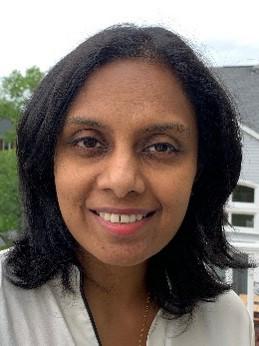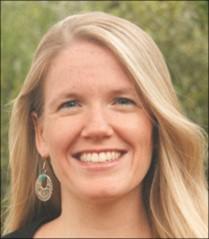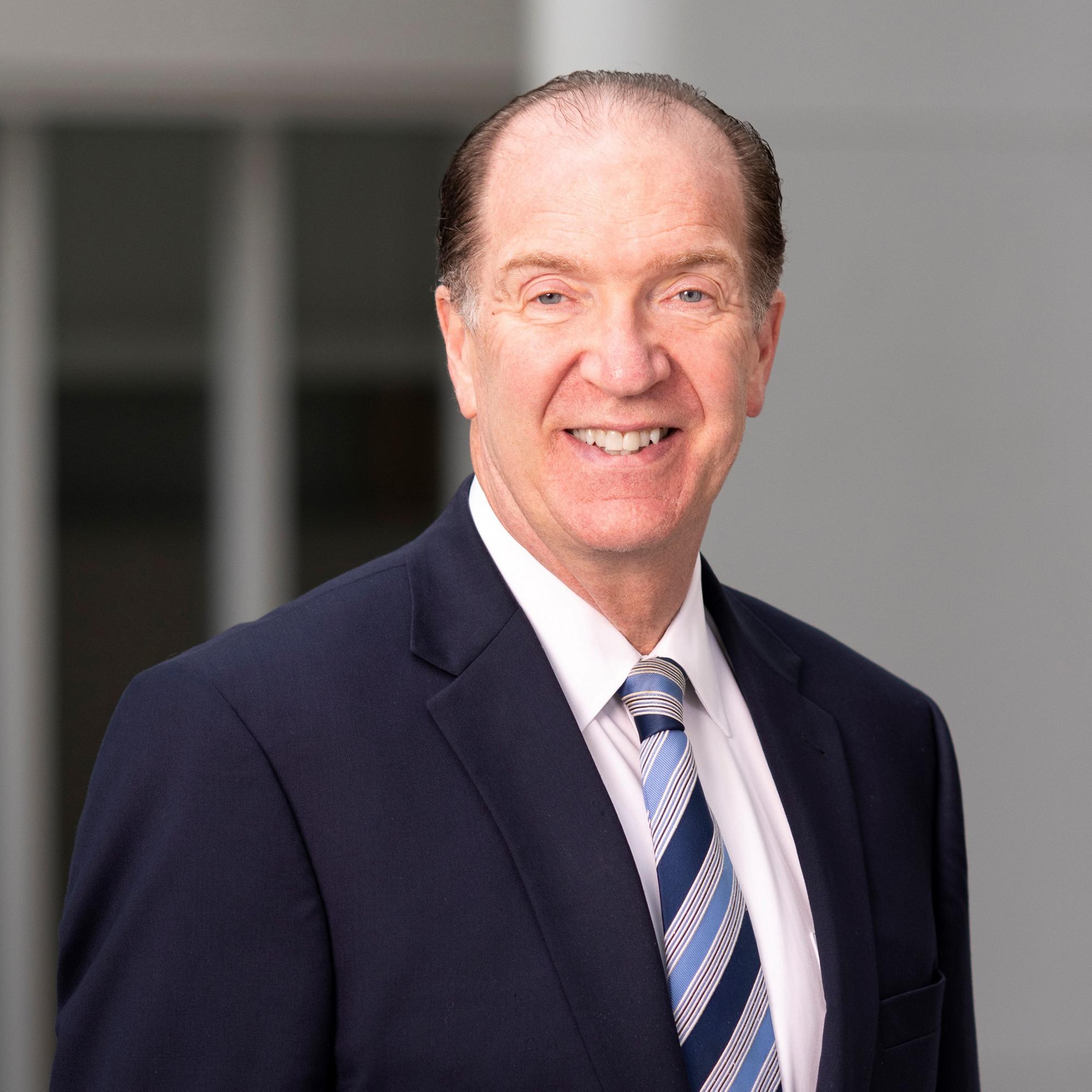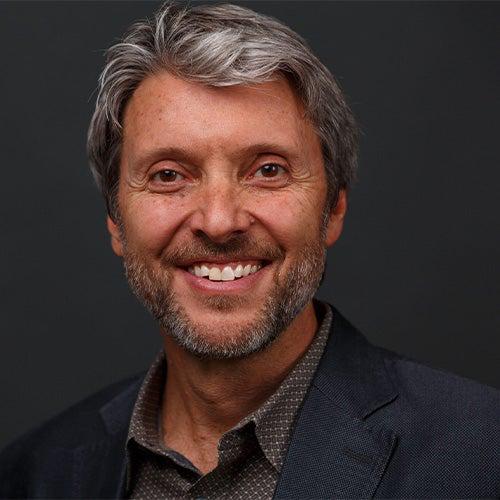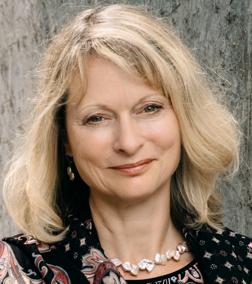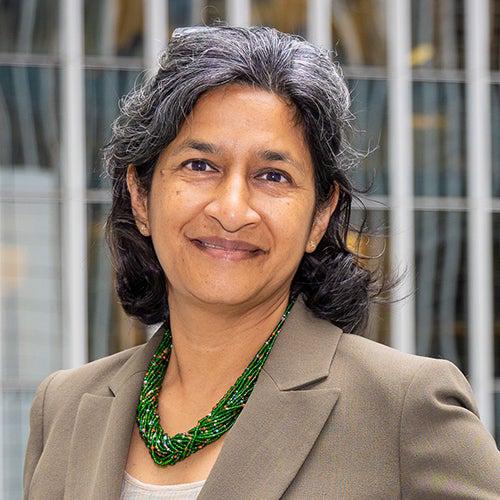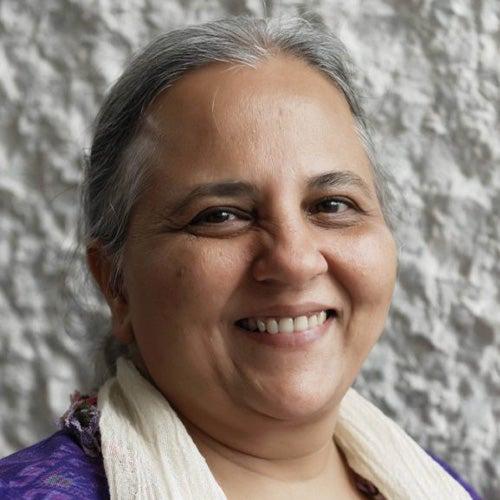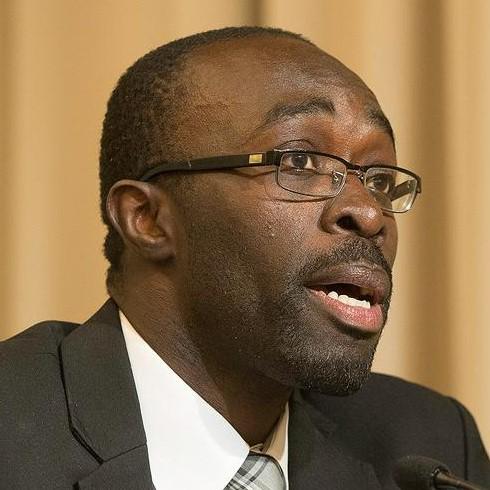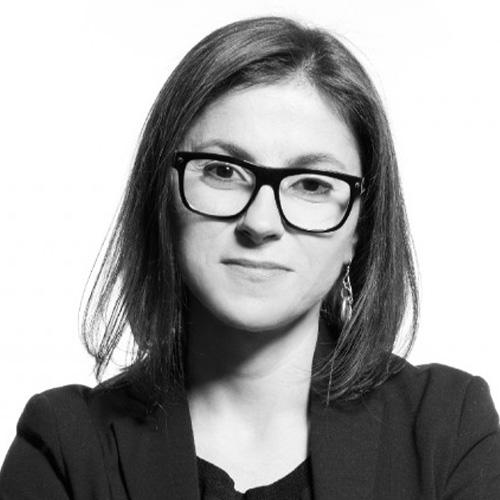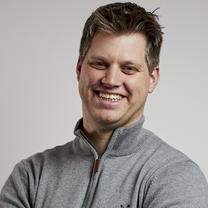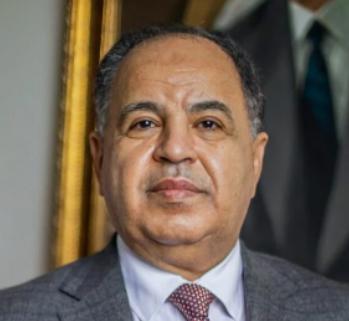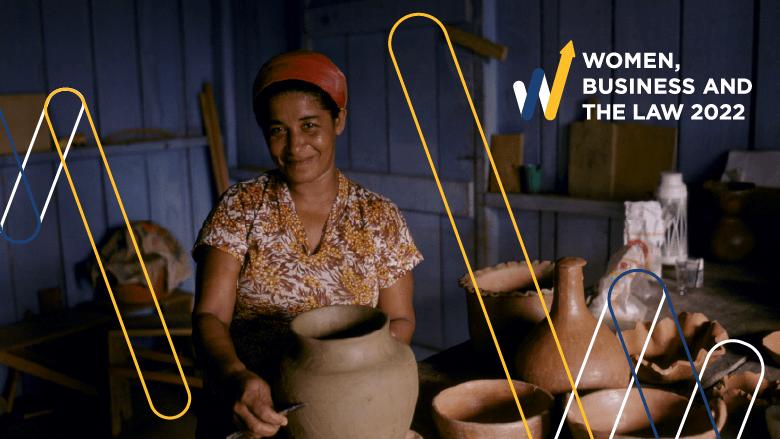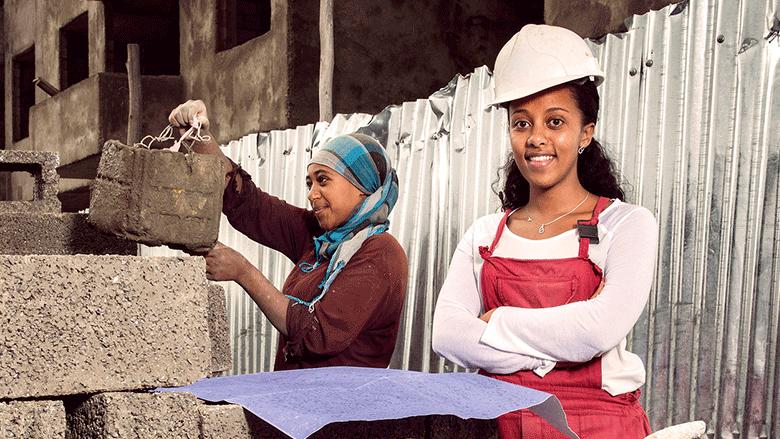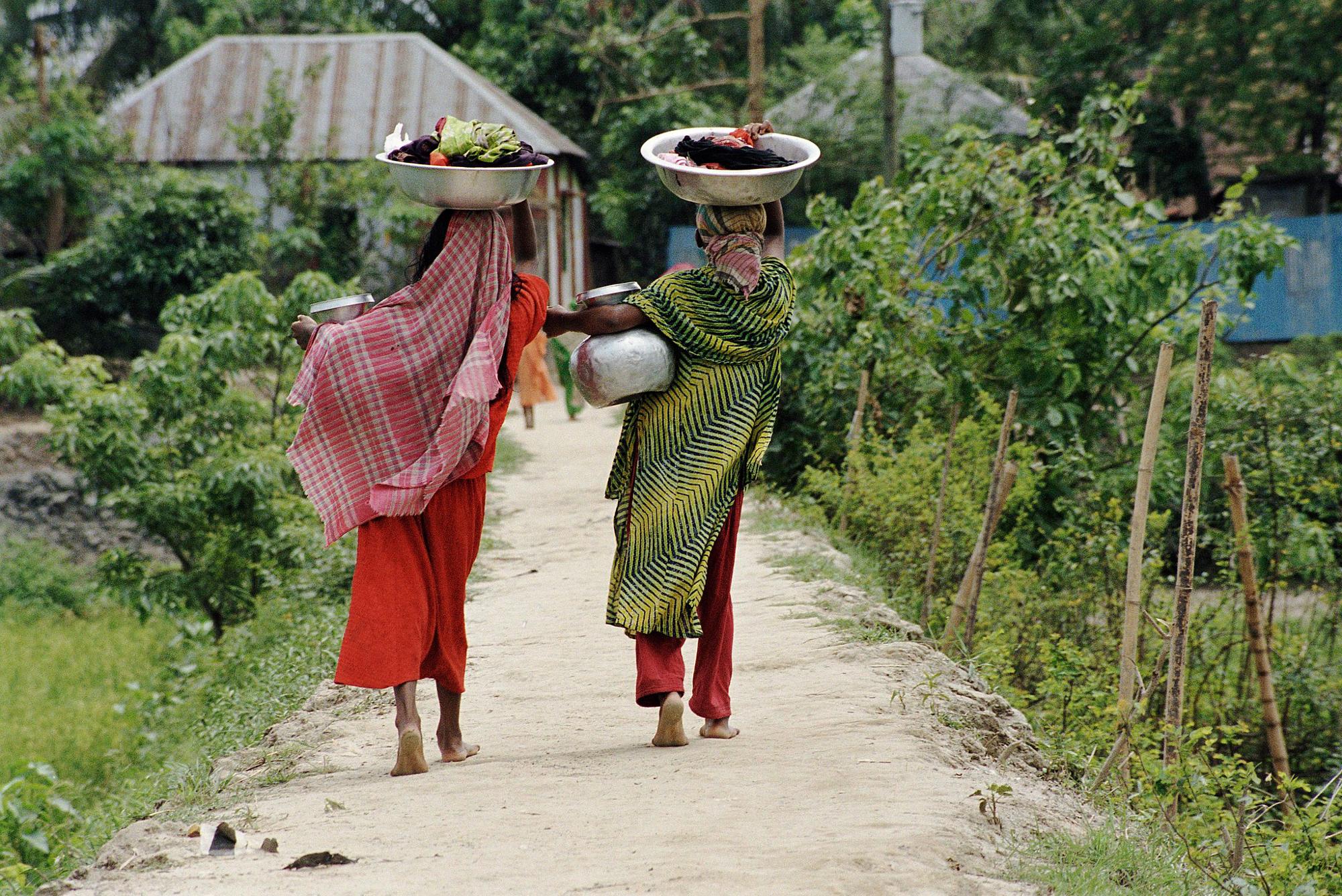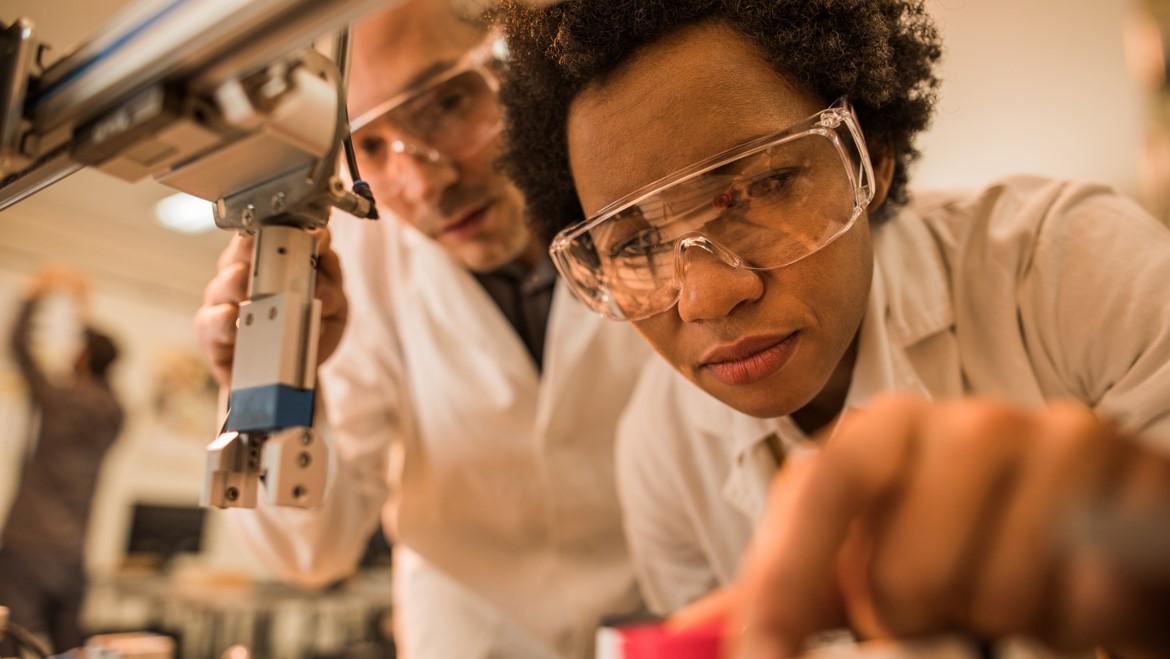Gender Data for Decision Making

Gender Data for Decision Making
Over the past decade, progress has been achieved in several key areas of gender equality, particularly in human and physical capital endowments and women’s economic rights. Yet large and persistent barriers in other domains like economic opportunities and assets remain and have been exacerbated by the COVID-19 pandemic. Underlying this is a critical need for gender data to inform smart policy decisions. To this end, the World Bank Group has expanded partnerships to improve the collection, access, sharing, and use of sex-disaggregated data over the last several years including investing in the recently relaunched Gender Data Portal and the “Strengthening Gender Statistics” project.
This event is an opportunity for a high-level yet engaging discussion on the value of gender data for policy reforms, programming, and monitoring progress/outcomes towards achieving gender equality. It is part of the World Bank Group’s yearlong Gender Equality and Development +10: Accelerate Equality initiative, which explores the important progress made and lessons learned in reducing gender gaps and increasing women’s economic empowerment over the last 10 years, and takes stock of remaining challenges, while strengthening partnerships with a diverse group of stakeholders in the quest to #AccelerateEquality.
[Hana Brixi]
Everyone to this live event on Gender Data for Decision Making. I am Hana Brixi, the Global Director for Gender at the World Bank Group and today we will hear from leaders and change-makers on the power of data for gender equality. Marking the 10th anniversary of the World Development Report on a gender equality and development, we will also reflect on how far we have come over the past 10 years and how to accelerate progress on the way forward. This is all part of our year-long Accelerate Equality initiative.
You can join us using the hashtag #AccelerateEquality and the chat.
Now, I am delighted to welcome World Bank Group President, David Malpass. President Malpass, you have made gender equality a top priority at the World Bank Group. Tell us, how do you feel about the progress made? In your view, what have been some of the achievements on gender equality over the past 10 years in the world?
[David Malpass]
Thanks Hana. There have been achievements and I will say some of those, but I think we should all recognize in the context of the challenges facing the world, both COVID and now inflation, high prices, and food insecurity, and the education setbacks that came out of COVID, that this is a very challenging global environment for women and for girls and for the gender equality agenda. I will go through some of the progress, but it's in that context that I'm very concerned about people in developing countries and especially women and girls. There have been achievements.
For everybody's reminder, this started in 2012 with a World Development Report that had excellent traction. It really went through how important this was both from an economic development standpoint, meaning women being half of the potential labor force and half of the population and, in many cases, much of the good decision making that's going on in families and even in governments. So that gave full basis and platform.
As we look at it, we have seen improvements in legal structures. We've got data and data is really important in this to track and to build evidence of how the progress is made. We show that 153 countries have introduced, we were counting 373 reforms towards gender equality over the past decade. That's good, including in Middle East and North Africa, we're showing 17 countries have introduced 57 reforms. Okay, so that's good and that's some evidence of the forward progress. There's also legislation on domestic violence. We know that the range of gender equality-related issues is broad, from violence to the legal structure of the business laws, of the inheritance laws, of the governance laws that allow women to be involved in development, but also in terms of their rights within the country's systems.
It's a broad agenda. We see that there had been progress being made on maternal mortality. Some part of this is just the challenges of childbirth and the particular challenges of women being the weaker within some of the legal structures of the world, and therefore being under particular challenges. This of course applies to girls. There's been some improvement in girls' enrollment in secondary schools. I wanted to go through that, Hana. The human capital index was... We've had the women business and the law report and the human capital index, both of which fully recognizing the importance of women and girls within development, within education and health. It's good to see progress. We're trying to make more progress on digitalization recognizing that in many cases, women and girls are some of the biggest beneficiaries because it allows connectivity that they might not be able to get within their cultural structure of their countries.
And so, as we can push forward, we've continued to push financial inclusion and broadened the concept away from bank accounts and more toward digital transactions, and cell phone-based transactions, which are highly empowering for women and for girls and for new business entrance into the economy. So that's a major theme of what we've done. Let me stop there. But to summarize, it's a very difficult environment for women and girls. There's been a backtracking, and we want to really restart the forward progress. Thanks.
[Hana Brixi]
Thank you so much, President Malpass. As you illustrated, the agenda is broad and also there are many actors involved from communities, to civil society, to national governments and also international development partners. I would like to ask you, President Malpass, to offer your reflections on how the World Bank Group has evolved in supporting countries to advance gender equality.
[David Malpass]
I'll mention two parts of it, how we've evolved inside the Bank, and then how does that impact and complement what we're trying to do with countries. So within the Bank, as many people that have worked at the Bank know, women have been an important part of it increasingly in the Bank leading in some ways on gender equality issues. That shows up in the high number of women in senior positions with the Bank. I've seen it, we now have a majority of the senior leadership team is women. We've seen, at the vice president and the director level, those numbers go up, and be high, I mean, be a majority. That gets incorporated in a full recognition by me, but by, I think, everyone in the bank that women are fully part of the decision-making process and often are making better decisions.
I was just at the G7 finance ministers and central bank governor's meeting last week. So on Friday, just three days ago, I was at the meeting and there was Janet Yellen and there was Christine Lagarde. There was Chrystia Freeland, the Canadian Minister. Kristalina Georgieva was sitting right beside me. There is the full recognition that countries that have more gender equality are growing faster. So there's strong reinforcement around the world of that and a recognition that the World Bank generates strong senior leaders and mid-level leaders that are women, which gives strength to the international system as a whole.
Now turning to countries then, that means that World Bank more so, I think, than many organizations and institutions has senior women at the country director level, at the business levels, encouraging good policies within the countries. As we interact with the countries, in countries that do have women in senior positions, they're very comfortable working with the World Bank, women and men, to change the legal structures in a positive way. We've been very happy with the success in Tanzania. As a woman president takes over, you get better outcomes almost very quickly and a better method of doing interaction. We're building on that and that's true around the world. We're involved, engaged in this realignment of staff to have more people in the field. That often means more strong women in the field, which helps create the better programs which is our... Our mission is to have good development outcomes for people in developing countries, including and especially women and girls. With that as a goal, that means having people on the ground that are fully part of that system is important. It's the right thing to do.
I'll give you a couple examples. People know the Sahel Women's Empowerment and Demographic Dividend Project. It started in 2015, it's been successful and we've expanded it multiple times which is, I'm trying to find scalable programs, ones that start maybe with 10 thousand people positively affected and then can hope to become 10 million people positively affected. So we're continuing to test new interventions. Clearly, the Sahel exemplifies the challenge that women and girls are facing.
Can I come back? I mentioned earlier, but I'll say it again. The setbacks from COVID are big on education. We've seen it in the data, the illiteracy data challenges. What we know is that when girls are allowed in school, they test better and do better than the boys, but when you look at the numbers, they drop out sooner and they are not re-invited back to school after a crisis. One of the problems we're facing after COVID is that. I visit schools in most of the countries that I go to. Just this year, in the last few months, I've been in schools, in Morocco, also in Romania and in Poland, I saw refugee children. So we see innovative school programs as being a critical part of this gender equality approach that we're taking.
One other thing I'll mention, and then back to you, is within IDA, IDA is a unique kind of instrument because in many ways, one is its leveraging capabilities, but also the dialogue that we have between users of IDA and the donors to IDA is a regular three-year process that's structured and that really ends up with strong input from the donors that is heard by the users. One key area of that is the gender equality commitments that are in the new IDA20. That means that there'll be particular focus on that throughout our country programs and throughout our actual projects. Thanks.
[Hana Brixi]
Thank you, President Malpass, for these illustrations of really increased investments and commitments to gender equality at the World Bank Group. Now, let's perhaps shift gears. So we've talked about the past 10 years and recent challenges. Now looking into the future, let's say the next 10 years, what would you see as the priorities to achieve gender equality and women's empowerment?
[David Malpass]
I've mentioned some of them. Well, one is having the World Bank have as good of programs in countries as possible, and data and evidence to support that and to see which ones are really working. In Morocco, I saw they are using NGOs or CSOs to do the preschool - sorry, my phone is going off- to do the preschool and it's working well. They have 200 thousand kids in preschool, which prepares them well for the schooling system, because the countries are facing this problem of early dropouts by girls. So, having them have a stronger start and the families be engaged is critical. So as I look forward, education of girls is going to be top priority. Obviously, nutrition and sharing of resources during the current food crisis is going to be vital that girls are not left out.
I think this digitalization as part of empowerment, I mean, digital transactions are available to women where a bank account may not be available or a trip to the city may not be available, but the digital information can be available. Also social safety nets can be run through those. I think we need to have a high priority on pushing that forward.
The legal structures for the countries are important in terms of violence against women being illegal for one, and being enforced as illegal, and there being protections in terms of women able to get to their jobs in a safe way. This is a high priority. That means investments... But it seems as if these are not expensive investments by the global standards and they give quite a bit of payoff.
We'll be doing a lot more. I know Mamta is on today on pandemic preparedness and health preparedness. That gets into the very important role of women health in systems so that's a priority, and particularly when it's under as much pressure as it is now. The family planning parts of the health system are going to be critical in the quality of life for women.
A lot of this just is really a broad agenda. As we know from the data, the evidence that one of the big challenges women face is, they and their girls are the ones that walk to get the water and if there's not water that comes to the home, it takes up hours of the day and is a dangerous part of their daily activity and yet necessary for the family. So, having the last mile or the last half a mile for water is a critical priority for countries such as in, well, all around the world. I was going to say India, but it's true in many of the developing countries that we need better access to water and to electricity as a way to make a role for women and girls more available.
We are continuing to push on the governance structures of communities so that women are involved. My impression is that many countries understand this agenda, and so we can attack head on the resistance spots in the world. Then part of this agenda, I think needs to be persistence, doing it year after year steadily through country programs with strong well-placed women in the World Bank that are particularly good at pushing forward the agenda, but everyone doing it together. Thanks.
[Hana Brixi]
Thank you so much, President Malpass. Perhaps I would add that with the data and the knowledge now, countries are in a much better position than 10 years ago to develop and adapt solutions and measure progress. When you look at the World Bank Group gender strategy with its four pillars: human endowments, jobs, assets, and voice and agency, the strategy remains relevant but lessons learned in dealing with the persistent challenges you mentioned, female labor force participation, gender-based violence, and also the new context, food security, climate change. These call for, I would say, more transformative solutions to boost, especially women's economic empowerment, resilience, and leadership. This implies, as you highlighted, an emphasis on institutions and gender smart approaches to development.
To advance institutions toward the transformative change countries can address the remaining formal constraints to equality, build capacity in government, in the private sector, and the civil society to drive for equality and help communities shift norms, for example, by engaging community leaders and men to accept more equal gender attitudes. Gender smart approaches also can help reduce fragility, improve food security, and deliver on other important outcomes. Now, evidence shows us how bundling cash with information and services targeting women can improve farm productivity, entrepreneurships, or nutrition outcomes, and how women's participation in community decision-making contributes to social cohesion, service delivery, or climate smart investments.
So coming back to your point, President Malpass, about the importance of data. Now, as we know, women's status and voice are often not adequately reflected in official statistics. How has the World Bank Group helped improve gender data?
[David Malpass]
So, there are a number of ways. One is to have partnerships and to listen to outsiders, as far as what the data is needed. Then in the countries, we work with the national data offices, and that's part of the program that we're trying to put together now or that we have to strengthen.
I might give people a low background. In order to work against fragmentation of development programs by all the various donors in the world who want to be involved in gender issues, we do a number of things to try to pull together the various donors and programs. One is to have country platforms, meaning at the country level to have the World Bank lead or the World Bank follow. If there's a strong other leader in the development community in the countries or a strong minister within the country's government, have a convening process in the country to talk about how to pull the programs together. I wanted to mention that.
Then, we're also trying to have umbrella programs for the trust funds so that there's not a fragmentation that really reduces the efforts.
Then you mentioned, and I was happy you did, Hana, the cash plus concepts where bundling money, or some access to some amount of money is highly empowering for women and having a way to do that and then to move it in the right directions of nutrition, of education, of her own reading skills maybe, those all I think work together. We're working with the national statistical office and multilateral partners and internally to support high-quality accurate and timely gender data. So I'll maybe come back to you, Hana, on the gender portal. I know that the conversation today is going to be highlighting specific ways that we can bring evidence and data to bear on these problems.
[Hana Brixi]
Indeed. As you mentioned, to advance and measure outcomes, we need to have relevant gender data. For example, for women's empowerment, we need to have data on unpaid care work, on gender differences in access to the internet, financing and other services, in asset ownership, from land to mobile phones. These are all the kind of data that are being captured through the new gender data portal. Everyone is now able to access the portal. The data is presented in a way that is easy to use by policymakers, by journalists, activists, as well as researchers. In fact, we will have a small preview of the portal at the end of the event today. Perhaps I'll come back to you, President Malpass, with some final reflections before we close and turn to the panelists that will share some examples on how they use data in their efforts.
[David Malpass]
Thanks. Well, this is great. I mean, having the data and having it accessible to the global community is a core part of the knowledge bank side of the World Bank that has tried to do it for low cost, meaning it's a cost center for the Bank, and yet we recognize the value. So that takes me to the concept of global public goods, which this is, a gender portal is one form of global public goods. We're doing lots more thinking about how the bank, or the recognition of the reality of the world is many of the things that the World Bank does are global public goods. In a way you can think of them as a cost center or an expenditure that we know is useful beyond the country programs. That can clearly involve climate issues where the benefits go to the world and the cost can be shared in some way by the global community.
It's also very apparent in the refugee crisis, which cross borders, and also very much visible in the vaccination, the value to the world of vaccination is high. We're, with regard to COVID-19 vaccines, fighting the hesitancy there, but it applies to all sorts of health-related initiatives, where we recognize that there's a huge benefit to the world and therefore needs to be financing mechanisms. IDA in a way is doing that automatically, is often financing things that are good for the world through donors that share that view. So with that, I'm glad to see the gender data portal, but also the broader agenda clearly has benefits across country borders and something that the World Bank is fully invested in. Thanks.
[Hana Brixi]
Indeed, President Malpass. We will hear from our panelists some exciting examples how these global public goods is serving for campaigns as well as policies and programs in countries. So, I would like to thank you, President Malpass, for your reflections, and I would like to turn to my colleague Haishan Fu, Director at the World Bank Group's Data Development Group.
[David Malpass]
Thank you, Hana, and thank you, Haishan.
[Hana Brixi]
Thank you, President Malpass. So, over to you Haishan.
[Haishan Fu]
Thank you so much, Hana and President Malpass, for such an enlightening opening dialogue. It truly is inspiring and reassuring, I must say, to know that World Bank Group is so strongly committed to promoting and investing in gender equality, especially at this critical time when the COVID pandemic, along with other global crises, are eroding the progress since the WDR on gender was launched a decade ago and threatening to widen gender inequalities. So urgent actions are needed, but this actions must be guided by the right gender data and insight they provide.
Let's carry this timely conversation further by turning to a wonderful group of panelists, whom I will introduce shortly. We will have two panel discussions. The first will focus on evidence-informed policymaking based on gender data. The second will explore how we can change mindset and collaborate to tackle gender inequality with the impactful use of gender data.
A big warm welcome to all our panelists, and thank you for joining us today to share your thoughts. Let me open the first panel with His Excellency, Minister Mohamed Maait, and Minister of Finance of the Arab Republic of Egypt. Your Excellency, what a pleasure to have you with us today. We know that Egyptian government has made considerable effort to enhance women's and girls' financial inclusions, as well as their agency over the past few years. If you could share with us briefly the latest reforms your government has undertaken in supporting gender equality and how you have been informed by the underlying data and evidence. Please, Your Excellency.
[Mohamed Maait]
Thanks. Hello and thank you for the invitation to be on this panel with regard to Gender Data for Decision Making. With me is evidence about what Egyptian Government has been doing in order to ensure that we have gender equality. Let me say that, from decades, that we're changing our laws to ensure equal treatment and equal rights for women and men. I remember the latest one, which was 20 years ago or even more, when women were given the right to divorce men, which was something we felt very happy that our law changed to allow women to divorce men. This is number one.
Number two, I believe that the latest movement head by that our parliament now is minimum 25% of Immis women. Our government is more than 25% women. We have, for the first time of Egypt history, to have governance of our government women. Also, women empowerment to allow them to be vice minister and the vice governors, and also the latest movement that women allowed to be judges in our legal institutions.
The latest one, which was, I think a few months ago, the state council. This was the latest to admit women to become judges in the state council, which is the administrative court for Egypt. I believe also, all the ministries in Egypt must have what we call it equal opportunities unit. When this unit has the power to ensure that women are treated equally and there is anything, they can address it. At the national level, we have this National Council for Women which look at any women issue and ensuring that, if there is any issue, it is raised to the highest level of the country minister and the prime minister.
I believe the current situation is very preferable and we are changing continuously our law to ensure that if anything comes up with regards to this, we will change our law to ensure that this is dealt with. I believe that few weeks ago, our president was talking about women and ensuring that they get a first treatment in their houses from their families and they are look after well.
So again, if I address some of the issue, which is for example, the gender gap index issued by the World Economic Forum and its legislation of 2020, Egypt was ranked at 164 out 153 countries was an index where you reaching 63%, noting that the higher index value, the lower the gender gap. Also with regard to inequality, indicators issued by the United Nations Development Program. This indicators consist to five basic variables in the field, which are productive health, environment and the labor market and the aims, rate and equality, and the distribution of opportunities between the two genders. Then the data for Egypt reached 0.449 according to the latest report issued in 2020, compared to 0.5 in 2018, which means that Egypt is under and data is out of 156 countries included in the index of 2020.
The lower the index reaches the smaller gap between needs and the female. For the digital gender gap, with the digital transformation provide ways for women economic empowerment by giving women subsidy to find additional income and inclusion opportunity and access to knowledge and general information has limited ability of males to access digital services is a measure obstacle to achieve the economic environment. Our Ministry of Communication and Information Technology says there is a digital gap in Egypt for internet service in 2020 reach 8.5%. The research of smartphones by males is 10% higher than the females. The usage of computer is 5.2% higher. For women in business and low index issued by the World Bank, the World Bank presents a reporting entitled, Women, Business and Law, which aims at comparing the level of gender discrimination system in field of economic and development and mentorship at the level of 190 countries around the world. Egypt ranked in this index. According to the latest report issued, in 2021 was for the period of September 2019 to October 2020, 170th position, with a total of 45 point out of 100 points. Egypt comes at 10th place in the Arab according to the data of the World Bank. Egypt has witnessed also a remarkable improvement in this data as index rose from 68.8 points in 2015 to 45 in 2017 and 75.2. Let me say, as a Ministry of Finance, we have this equal opportunities for women. Also, we issue gender-based budgeting, which looks after how our budget is moving with regard to female looking after. Also, we think that we're going to issue gender bond. We are in the preparation to issue such gender bond in order to prove that we are moving this direction. Let me conclude that in Egypt, we are trying very hard and we believe that we made a good progress. As a final prove that if you come to Ministry of Finance, you'll find that the majority of my assistant and my colleagues working with me are female. Thank you very much.
[Haishan Fu]
Wonderful. Thank you so much, Mr. Maait. It's just so heartening to see the progress and the new policies and initiative you've introduced right in the middle of the pandemic. I'm sure they will have a long lasting impact in terms of promoting progress towards greater gender equality. Also wonderful to hear that World Banks' global public goods, such as Women, Business and Law has served to inform your government's action. So thank you so much. Let's now turn to Mr. Papa Seck, Director of Research and Data and UN Women. Papa, we have been working in this field for so long together.
It's always wonderful to have you in this discussion. We know that the World Bank and UN Women have a long history of working together to promote gender equality, including through supporting gender initiatives. Most recently, your rapid gender assessment on impact of the COVID pandemic on women and men, and World Banks supported high frequency phone service in kind countries are really complimenting each other to help inform the government. So taking this opportunity, I'd like to ask you to share with us some of the insight from your rapid gender assessment and how you and women has been working with the governments and other partners to implement policies and programs taking into account the considerations from these surveys.
[Papa Seck]
Thank you very much, Haishan, and thanks to Hana and colleagues for inviting me to speak about this topic that is really dear to my heart. It's great to see you again, by the way, it's been quite a while. So at UN Women, as soon as the pandemic was declared, we recognize that good and timely agenda data was key to the response. This is partly because of experience of how past crisis have affected women, but also the measures that were being taken such as stay at home orders, which as we all know, can be as careless for women who are victims of, or are at a risk of domestic violence. So despite the challenges faced by national statistical systems, there was really an opportunity for us to innovate and to explore new approaches to address the increasing demands for timely data on the impact of COVID-19.
This is why we started the rapid gender assessment service in April, 2020. And as you've highlighted, I have conducted over 78 of them around the world. We've also collected data on even the policies that countries were enacting to see how they were addressing the needs of women. So really looking at the impact, but also the impact of policies that were being implemented. So the results of the RGAs, Rapid Gender Assessment surveys as we call them, have been used by many countries to develop targeted programs to address the socioeconomic impact of COVID-19. In Haiti, for example, the RGA was used to inform the Gender Sensitive Humanitarian Response and Recovery during the 2021 earthquake. We are using similar methodologies now in Ukraine, really going even beyond the COVID-19 pandemic, but using the same tools to address emergencies. Working closely with partners made the use of this data possible. By partnering with national statistical offices and gender ministries to address their pressing information needs, we ensured that the data was nationally owned, but also used to inform policies.
I'm also happy to learn that as you pointed out, that the Bank uses the results of these RGAs for its own analysis and operations. This is also not a coincidence. Now, we've collaborated very closely with the Bank as part of the RGAs design and have also worked closely on gender data, dating back at least a decade when UN Women's work in this area was just starting. I'm also personally delighted to have served on the advisory group, a panel of the revamped gender data portal, which is an excellent resource for which I do congratulate again, the Bank. Finally, let me just close with one short reflection. We know that gender statistics has historically suffered from a lack of prioritization by statistical system at all levels, whether it's national, regional, or global, and it shows in the limited data that is currently available to monitor the gender related SDG targets.
However, thanks to the great work that many organizations such as ours, the World Bank and UN Women and others have done, we are seeing much greater demand from countries. The demand is really much stronger, whether we're talking where time surveys or gender in the environment, or violence against women or any other topics. We need to keep this momentum. The lessons that we've learned through the pandemic point to an immediate need to step up our support, both technically, but also importantly, by increasing investments in gender data, both domestically and internationally. I really look forward to continuing this conversation with the bank and other partners to find the pressing solutions needed. Thank you.
[Haishan Fu]
Thank you so much, Papa. We are really enjoying our fruitful partnership and really looking forward to do much more together. Now, let me turn to Reema Nanavaty, the Director of Self-Employed Women's Association in India. Reema, I'm really thrilled to have you on the panel with us today, because your leadership and experience over the past few decades has led to more fair and equal opportunity for thousands of self-employed women in India.
You once said that, data has now become a tool to increase the collective strengths and bargaining power of women. It speaks to me deeply and I think it really captures the spirit of this entire event. So let me invite you to share with us, what is your approach to working with different stakeholders, such as government, private sector, academia and others to enable evidence based policy reform, including through advocating for the importance of improving data about women workers in the informal economy?
[Reema Nanavaty]
Thank you so much and thank you [inaudible] and Hana and Haishan for giving voice to the need of data for the informal sector, women workers. Data is an emerging important tool as we see in organizing foreign women and help them or support them come out of poverty. This has been clearly realized and validated by the global commission on future of work of ILO more recently, the UN Food System Summit and even more so the pandemic has shown us how to an extent this is possible. Use of data has been a very important ingredient of organizing. SEWA’s birth took place when a survey of textile mill workers and their families was done. It was found that, women of these mill worker families were working in the informal sector and very often self-employed. So today we have our own application, which gives us real time data on the renewal of membership on their trade, on the income levels, and the government entitlements.
It helps us in targeting. Similarly, the birth of SEWA Bank, one of the largest self-employed women workers bank in the world today, came out of the savings pattern of the poor self-employed women workers who were saver members. So today, the SEWA Bank has developed a whole mobile based application that helps in real time data management, as well as flow of cash. More examples can be found all across in the last 50 years. Currently, as we speak SEWA is conducting a six state survey to find the impact of the pandemic on the SEWA members. 120 thousand cotton farmers are being surveyed to find ways and means of turning them towards ecosystem based cotton farming. I can go on and on, the list is much longer. But in the end, I would like to point out that the bank has done commendable work in this field of data and gender equality.
I think the bank must help organizations like SEWA to consolidate such data that is existing by investing not only in consolidation, but encourage common ownership and easy access to such data, not by the other stakeholders alone, but by women and the workers and jointly co-creating knowledge for data systems off by and the poor women. This is what we call the bottom-up AI, which becomes a bargaining tool. How do women own and create their own algorithms? So I'll be writing to you and to Mamta, to Hannah in this regard on behalf of all such organizations on using data to organize foreign women. Thank you so much.
[Haishan Fu]
Thank you so much Reema. It is really wonderful to hear what you have been pushing for in the ground. Also, we'd love to collaborate with you. So we will be following up with each other. So on that wise words, let me turn to the second panel. As we all know, having gender data available is critical, but to make them really impact change, we really need to make sure that this data actually understood and used effectively by different stakeholders from policy makers, to gender advocates, to researchers and the journalists.
So that's why it's my pleasure to now turn to our second panel, changing mindset and collaborating to accelerate progress. I will start the panel with Michael Sheldrick, who is also called Mick, who is Co-founder and the Chief Policy Impact and Government Relations Officer and at Global Citizen. Mick, thank you very much for joining us. We know that Global Citizen harnesses the power of enormous global community to push for action on climate change, poverty and equality. I really would like to hear from you how you see that we can curate and communicate data to the right people for decision making and how we can ensure that this data understood properly and used effectively for the cost that you are leading.
[Michael Sheldrick]
Yeah. Well, it's a real pleasure to be here. Thank you for invited me. Literally, we are here in New York at the Global Citizen NOW summit, and literally we just came from here in Prime Minister, Mia Mottley of Barbados on stage. She actually made a point as it relates to data. At the end of the day, as advocates, those of us pushing for policy change, we can make our arguments far more robust, far more resonant with not just policy makers, but the big financial institutions if we can link this back to economic impact. She was making it in the context of anti-microbial resistance, but I think you can easily also make the case in the argument when it applies to gender equality. The reality is, when we look at the costs that this will have to the global economy in the future, if we put off making the investments today, we're going to pay more later.
I think meeting with finance ministers, your equipment advocates, I mean, ultimately we're a citizen led organization, we say citizen led accountability is key to delivery. So one of the things I always push for is, making sure that the data points don't just sit in reports and in talking points, but how do we actually get that out to artists? We were talking about how do we equip those in popular culture? How do we equip those at the grassroots to use those points so that they can hold their policy makers to account and the feet to a fire? I would say the other point is, unfortunately in the times we live in, it's all well and good for our political leaders to give platitudes, make nice comments. We can all say we want to address climate change, but unless we actually get into the hard points of solving these issues, it's really hard to hold leaders accountable and to know what's true and what's not. Data is, if you like, the disinfectant of sunlight that shine shines on the truth. That's really what data is about from our experience as advocates.
[Haishan Fu]
Thank you so much Mick. I love the way you described how important data is in such a poetic way. And I am really enjoying what the insight you shared. Now, let me turn to Gary Barker, the CEO and Co-founder of Promundo-US. Gary, we're really delighted to have you with us today as you work engaging men and boys in advancing gender equality, changing social norms is absolutely groundbreaking. We all know that social norms remains a barrier for us to achieve greater progress towards gender equality, and your work focus on ensuring that men and boys are engaging in this conversation to truly move the needle on gender equality. We really would love to hear from you how you have used data and evidence from surveys you developed on men's attitudes and behavior related to violence, fatherhood, and gender equality, to change mindsets of communities about men and women, boys and girls. What is your advice for leaders connected here today or beyond on how to tackle the issue of social norms to enhance programs and policies to improve gender equality? The floor is yours.
[Gary Baker]
Sure. Thanks for those questions and for the opportunity to be part of this conversation. We've been using data for about 15 years in a survey called, The International Men and Gender Equality Survey or IMAGES, which we've carried out with country partners now in nearly 50 countries and using that as a conversation to say, this is not just men and boys saying they're on board, but really do we see proof in their attitude change and also in behaviors and that's of course, a huge challenge. Where we've used the data, just to give a couple of examples, and good to hear your president talk about we want to see these taken to large enough scale to make a difference. In Rwanda, IMAGES data have been used to develop a parent training, a dinner transformative parent training model called Program P, [inaudible] in Kenya, Rwanda that is now being scaled up at the national level with the Ministry of Health.
That's been a partnership as well along the way with the World Bank's Gender Innovation Lab. That's an example of taking the data to say, what concretely do we need men to do in terms of reduction in violence at the household level and men's hands on participation in care work? We've done a randomized control trial, found that data holds up five years later, and using that data to then turn it into a nationally scalable program. Similarly, in Bolivia, carrying out the IMAGES survey, we're working with municipalities to implement youth-focused gender transformative, gender based violence prevention. That's been a partnership with the Inter-American Development Bank. And again, to get more sophisticated about violence prevention and not say we just throw campaigns into the air, but we know which men have more likelihood of using violence. We know what things need to be in our programming to actually make a difference. At the community level what does it look like to scale that up at the municipal level?
In the Republic of Georgia, we've worked to carry out IMAGES in two different moments to see whether a national campaign on social norms can make a difference, in partnership with UNFPA, carried out a national campaign on men's caregiving, making that normal for men to do it and looking at women's attitudes and men's attitudes. Four years later after that campaign, we did see shifts at the national level in attitudes about a belief that men should do more of the care work.
We've also done some of this in post conflict areas, in a partnership again with the World Bank and in Eastern DRC. Again, using data both to show that gender transformative interventions with men and boys work and secondly, that we can engage with the public sector, sometimes with the UN, sometimes with the World Bank and always with governments to take it to scale.
So big piece of advice is, we need to take seriously that men need to be allies and see their personal interest in this. We've seen a lot of backlash happening in many parts of the world. We do need to reach men on why this is good for men. One of the social norm parts is that, to help men see our investment in gender equality, and the other is to carry out data, to say, there's very concrete things we need men to do. As we look at, I heard your president referred to women policy and the law, women, gender and the law rather. I think that's an area where we need to build in data to say, are we seeing men change their behavior? So we carrying out that data over in a time series approach that we're actually measuring change. Thanks and let me stop there. I know we're short for time.
[Haishan Fu]
Thank you so much Gary. Thank you for reminding us, accelerating progress towards gender equality is not just a women's cause, it's a women and men's cause together. Thank you for this ground breaking work that you've been leading. Thank you so much. Now, let's welcome, Dragana Todorovic, I hope I'm pronouncing your name right, who is the Executive Director with Strategic Organizational and Program Focus at LGBTI Equal Rights Association for Western Balkans and Turkey.
Dragana, your leadership in increasing awareness and advancing the human rights of the LGBTI community is really inspirational. With this event, we also want to take the opportunity to push the development community further in terms of its commitment to ensuring dignity and inclusion of LGBTI persons, and to taking a broader look at gender. Your work truly models for us what progress and engagement across stakeholders can look like. We'd love to hear from you, what has been your approach to collecting and developing evidence on the status of LGBTI rights in the Western Balkans and Turkey? What is your advice for using this data to engage with policy makers on laws and their implementations that affect LGBTI persons and their well-being, their safety and their empowerment?
Dragana Todorovic:
Well, thank you so much for these very interesting questions. Also thank you so much for this opportunity and also for including the LGBTI perspective in this important event. I think these intersectional perspectives are very important. Let me now give you a few words about our experience with regards to collecting and leveraging data on the lived realities of LGBTI persons in our region. Our organization is actually a regional LGBTI network of now 82 LGBTI organizations from Western Balkans and Turkey. Even though we have a very diversified work portfolio, influencing policy reform process is based on data and evidence really forms a large part of what we do on a daily basis on the national, regional, but also international levels. I can say that the first characteristics of data when it comes to our communities is that it has for a very long time and to a large extent been missing.
When surveys concerning the socioeconomic situation of the population at large were conducted, or when for example, violent incidents were recorded, the absence of desegregated data that's taken to consideration sexual orientation and gender identity have greatly contributed to invisibilizing the structural inequalities of our communities, and as a consequence has allowed authorities in our region to disregard systemic discrimination and widespread LGBTI folic violence for far too long. Therefore, for us as a community data collection is the key to demonstrate and convincingly convey to policy makers our collective experience of discrimination, violence, and harassment, and therefore to try to trigger a much needed response. It is for our communities, but also for the NGOs that represent them a critical tool to make sure our concerns are no longer ignored. Our approach has been to ensure the relevance of the data collected and also to facilitate its analysis and use often from a comparative perspective in comparison to the experiences of the general population, for example, or in comparison to other world regions or countries. Concretely, over the past six years, the World Bank and ERA, in partnership, have collected critical evidence and this exercise that revealed something that we as a community already knew that the situation for LGBTI people in the Western Balkan countries is much worse than the experience of their peers in other, for example, EU countries, or very different and worse than the experience of the general population across nearly all possible dimensions.
These studies have been some of the very few pioneering efforts in our region, but also globally, to provide data on different aspects of our lived realities, including also on the economic cost of discrimination, which actually is providing us with a new unique set of evidence that is underlying the added value of anti-discrimination policies for the society as a whole, and proving once again, that fostering inclusion benefits all as it correlates, as we have been able to hear from other speakers, as it correlates with the more prosperous society with faster growing economies, which is usually what decision-makers in our region care about the most.
Lastly, the importance of the support of the World Bank in this regard cannot be overstated. Indeed, the legitimacy and the credibility best told on the reports stemming from these exercises is to be credited to a large extent to the political weight and the known rigor of a partner as influential and as highly regarded by national authorities in our region as the World Bank. So this collaboration has been truly instrumental in opening doors for the civil society, securing a place for LGBTI NGOs at the table when policies affecting our lives and future are debated, and strengthening the voices that were until then left at the margins. I can only hope that this critical support of the World Bank will continue as we are determined to continue our transformative advocacy based on rigorous and robust data collection methodologies. I will end here. Thank you.
[Haishan Fu]
Thank you so much Dragana for your courageous leadership and really inspiring work, and for reminding us the role of institutions such as the World Bank in affecting change, and we look forward to continuing working with you all. Thank you too, to Mick and Gary for your truly invaluable reflections. I believe that our discussions in both panels underscore the notion that the gender data themselves are a form of women's and girls' empowerment because they help review reality, inspire change, accelerate gender equality, and improve lives by enabling bold activism, legal reforms, and the right policies and programs. So let's work together to advance the gender data agenda, to accelerate progress towards gender equality. With that, let me now give the floor to World Bank Vice President for Human Development, Mamta Murthi, for her closing remarks.
[Mamta Murthi]
Thank you very much, Haishan, and thank you to our excellent panelists. It's very hard to come after you and make some concluding remarks, but I'm going to try. We have had a very rich discussion. I think we all agree that gender equality is intrinsically the right thing to do, but I do feel that the publication of the World Development Report on gender and development in 2012 was a watershed moment, because it made the point that equality is not just about things that are intrinsically good, but it's also about smart economics. I think that's a core message that we want to underline and stress and maintain. And we would not be able to do that without the power of data. So data allows us to constantly reinforce and reignite the message that gender equality is in addition to being intrinsically good, it's also economically the smart thing to emphasize.
Now, we are one of those big institutions that talked about. We are at the World Bank and we have a role and a responsibility when it comes to data and gender. I believe in the opening panel with President Malpass and Hana, the point was made that we are doing a lot in the sphere of agenda data. We try and support the collection of more and better data, and this is through partnerships with statistical agencies, national statistical agencies, but also other actors in the field, UN Women, civil society, organizations, advocacy groups, et cetera, and many of you were represented in today's panels. We believe this data provides crucial insights into both improvements and setbacks. I love the word that one of the panelists used. I think it was you Mick who said that, data actually is the sunlight, that brings the disinfectant of sunlight onto issues and helps ensure transparency and accountability for objectives that have been laid out by government and by societies. That's what we try to support as the World Bank.
Now, we are painfully aware that data gaps inhibit progress on crucial development issues. I think Reema gave an excellent example of the value of data in highlighting the issues faced by workers in the informal sector, our colleague Dragana from the Balkans highlighted the value of data in bringing to light issues faced by the LGBTQ community. So data plays a very important role in highlighting the gaps that inhibit progress on crucial development challenges.
Now, we do two kinds of things to improve the quality, availability and use of data. Let me just highlight them.
First is, working in partnership to enhance the collection of data. This means working with national statistical agencies, it also means collecting data and generating the global public goods that President Malpass talked about. There was a reference to Women, Business and the Law. This is a very important annual publication of the World Bank. There's the Global Index, which we also help produce, which is on financial inclusion, and I can name many more things, enterprise surveys, the living standards measurement surveys, and so on.
But the second thing we do, in addition to helping collect data and improve the capacity to use data, we also invest in research and survey methods to improve the quality of the data itself. Again, this is done in partnership, and I want to highlight for you to say two very important partnerships. One is on women's work and employment, and this is with the ILO, the FAO, as well as Data2X. And then, there are Measures for Advancing Gender Equality, and it's called MAGNET, it has a great acronym, and this is led by the World Bank's Africa Region Gender Innovation Lab, also our development economics research group, but it's done in collaboration with IFPRI, IRC and Oxford University.
Now, all of this data which is collected is extremely useful in the work that we do with governments, supporting them either with technical assistance or financial assistance or both. The purpose of this data is to help the World Bank implement its own gender strategy, which is trying to close four gaps: gaps in human endowments, gaps in asset ownership, gaps in labor force participation and gaps in voice agency. A little bit like our colleague Gary from Promundo described, this data helps inform the design of projects and helps monitor whether project projects are meeting their stated objectives.
I'd like to underline, for example, in the area of human endowments, President Malpass talked about the Sahel Women's Empowerment and Demographic Dividend Project in the Sahel. This is playing a very important role in reducing gender gaps by expanding access to sexual and reproductive health for adolescent girls and encouraging them to complete school and get employment. This also works with men in the community and religious leaders a bit along the lines of what was being discussed earlier by our colleague from Promundo. In the area of encouraging labor force participation, I want to mention very briefly the work that we've been doing on supporting government programs that bundle cash with services, such as literacy, such as access to markets, and this helps with the productive inclusion of women. We've also been working on a number of childcare initiatives because childcare is such a barrier to accessing jobs, both in the formal and the informal sector.
Finally, let me let, just reflect...Sorry, someone's on the line.
Finally, let me just reflect that we have a very active, ongoing partnership in the area of gender statistics. This is something that we intend to maintain and build upon. This entire year, we have an initiative called, Accelerate Equality. The purpose of which is to reflect on what the World Bank has done in the past 10 years on gender, and also to solicit ideas for what we should do in the coming 10 years. So we really appreciate the engagement of everyone in this initiative. As a part of this initiative, we've launched the World Bank Gender Data Portal. We hope it's useful to everyone. At the end of my remarks, you're going to have a very short video that walks you through the gender data portal and I hope it shows you how exciting it is.
In the forward looking part of our work, as we solicit inputs from all of you. I just want to say that we are very much going to reflect on what many of you said. I was very struck by the call made by Dragana to think about the need for greater inclusion and Dragana, you've challenged us to go beyond very traditional notions of gender and we take note of that. Gary, I was very impressed by what you said about getting men and boys more concretely involved and seeing them as a part of the investments that need to be made to enhance gender equality. So we very much take note of that. And Reema, you are very clear that you're going to be asking us to do more, particularly for those who work in the informal sector, and we've also taken note of that. Finally, I want to conclude by reflecting on what Minister Maait said from Egypt, about the importance of making sure that the legislative framework is not only supportive of equality, but uses data to constantly update so that there is continuous learning and laws are changed based on information and data. I think that is something that we, as the World Bank, would aspire to support everywhere.
So with that, let me thank you once again for your participation and urge you to stay an extra two minutes so that you can see this short video that takes you through the gender data portal, and I hope it inspires all of us to do more in this area. Thank you very much and good bye.
[Narrator on video]
A brief diagnosis on the need for accurate and updated data on gender for better policies.
Did you know that there are still some countries where women make up only 20% of the workforce?
Accurate and updated gender data allows us to capture these gender inequalities and are essential for key decision makers to plan effective interventions and policies, the existence of this data portal and how you can access it.
To make data on women and men, boys, and girls more accessible in digestible, the World Bank Gender Data Portal puts over 900 indicators at your fingertips through visuals and stories.
Here are some of its key features. Main things you can do on the portal. An improved search function helps you more easily find data and resources through key terms and abbreviations. A new data exploration tool allows you to explore and download all the data and create custom visuals with just a few clicks. You can customize the filters and economies to your needs, and also view the data source and methodology. Country and region profiles provide you with a snapshot of gender equality across key indicators.
The portal provides functionality on every page to easily share and download data and visuals in multiple formats. Interactive data stories explore different gender topics through storytelling and data visualizations that help highlight key insights from the data.
The portal also summarizes the availability of gender data by country, topic and indicators over various time periods. Lastly, a resource repository offers the latest guidance on data collection and free courses on data literacy and communicating gender statistics among other things.
What is the benefit of using the portal? Gender data holds the power to make the invisible visible. The portal plays a key role in making that happen by providing high quality data and easily understood formats to help our partners share and communicate the insights and pinpoint gender issues to prioritize the implementation and financing of gender programs and data collection efforts.
[Music]
00:00 Welcome and opening remarks
06:12 Supporting countries to advance in gender equality
12:48 How to achieve gender equality and women's empowerment
19:52 How has the World Bank Group helped improve gender data
27:44 Egypt's reforms in gender equality: data and evidence
36:02 UN Women: Insights from the rapid gender assessment
41:09 Stakeholder approach to enable evidence-based policy reform
46:18 How to curate and communicate data for decision making
49:30 Using data and evidence to reshape social norms
54:49 Collecting and developing evidence on LGBTI rights
01:02:14 Closing remarks
01:11:51 Animated video about the gender data portal
Our Live Q&A Expert
Hello everyone, and welcome to our World Bank Live event - Gender Data for Decision Making. We'll start the event in a few minutes. Please stay tuned and submit your comments and questions using the live chat.
You can join the conversation on social media using the hashtag #AccelerateEquality. This event will also be livestreamed on our World Bank Twitter, Facebook, and LinkedIn accounts.
Kelly Reventar (Moderator)
While we wait for the event to begin, learn more about our recently launched Gender Data Portal here: genderdata.worldbank.org
The portal makes the latest gender statistics accessible through compelling narratives and data visualizations to improve the understanding of gender data and facilitate analyses that inform policy choices.
Kelly Reventar (Moderator)
Welcome everyone! I’m KellyR with the World Bank, and I will be moderating today’s live chat.
Listed on this page you can see the speakers participating in today’s discussion.
Kelly Reventar (Moderator)
We are joined today by our expert bloggers Malar Veerappan, Program Manager & Senior Data Scientist and Heather Moylan, Survey Specialist, who are online to answer your questions.
Kelly Reventar (Moderator)
We are live today in English with interpretation in Arabic, French, and Spanish.
Remember, send your questions either through the live chat on this page or by using the hashtag #AccelerrateEquality on social media. Your questions will enter a moderation queue and our live experts will be answering in this chat.
Kelly Reventar (Moderator)
Now speaking is David R. Malpass, President, World Bank Group.
Kelly Reventar (Moderator)
Without prejudice to a state's sovereignty, how's WB addressing shrinking civic spaces stifling alternative facts especially those that paint grave & often true picture of the situation like poverty. A country may present official figure of 60% of its women attained Net income per capita of 5$ when over 80% are at 2$? And how will member states of WB be held accountable so that gender data other than political affiliations lead to informed decision making that is not gender blind but addressee the gender uniqueness of men, women and others?
Jonathan
@Jonathan: Without prejudice to a state's sovereignty, how's WB addressing shrinking civic spaces stifling alternative facts especially those that paint grave & often true picture of the situation like poverty. A country may present official figure of 60% of its women attained Net income per capita of 5$ when over 80% are at 2$? And how will member states of WB be held accountable so that gender data other than political affiliations lead to informed decision making that is not gender blind but addressee the gender uniqueness of men, women and others?
Malarvizhi Veerappan (World Bank): Making gender data and analysis publicly available and accessible in a transparent manner can promote accountability. As data are made more openly available and accessible, it’s also important to promote the use of already existing data to do more analysis on gender issues. These efforts should be supported by initiatives to strengthen gender data literacy among both government officials and the general populace to encourage better understanding and use of gender data. Data literacy can play an important role in improving accountability. Improving the understanding, use and communication of gender data by civil society, media and society at large can help develop policies that reflects the needs of all people (women and men).
The World Bank and several organizations are have developed several courses and you can find more details here genderdata.worldbank.org
Malarvizhi Veerappan / World Bank
How will the concerns of the LGBTQAI+ be addressed?
Casy5678
Great question. We are thrilled to have Dragana Todorovic, Executive Director, ERA – LGBTI Equal Rights Association who will speak about this important topic during the panel discussion.
Malarvizhi Veerappan / World Bank
Learn more about our recently launched Gender Data Portal here: genderdata.worldbank.org
Kelly Reventar (Moderator)
Today’s event is moderated by Haishan Fu, Director, Development Data Group, World Bank.
Kelly Reventar (Moderator)
We have a wonderful group of panelists today split into two discussions. The first, on evidence-informed policymaking joined by UN Women and members of government, and the second, on changing minds and collaborating to act on inequalities, featuring global thought leaders who work with key decision-makers around the world.
Kelly Reventar (Moderator)
In my country, the boychild is almost forgotten. Gender equality is taken to mean women empowerment. What is the world bank doing in its sphere to ensure a genuinely leveled playground for both the male and female gender?
Ronaldo Juma
@Ronaldo Juma: The World Bank Group takes as its starting point that no country, community, or economy can achieve its potential or meet the challenges of the 21st century without the full and equal participation of women and men, girls and boys. For example, addressing educational underachievement of boys and men is an important priority. A World Bank report takes stock of educational underachievement among boys and men and the contributing factors. The report examines three forms of educational underachievement among boys and men:
Low levels of participation in education
Low rates of education completion or graduation
Low student learning outcomes.
Please see more details here on the interventions needed. blogs.worldbank.org
Malarvizhi Veerappan / World Bank
H.E. Mohamed Maait, Minister of Finance, Arab Republic of Egypt kicks off the discussion.
Kelly Reventar (Moderator)
Head over to our report, Women, Business and the Law, which measures the laws and regulations that
affect women’s economic opportunity in 190 economies. wbl.worldbank.org
Kelly Reventar (Moderator)
How would you describe the current state of data on Gender Equality ? Eg 1. Violence against women 2. Sexual harassment 3. The wage gap 4. Women's health 5. Work-Life balance
Drissa Sheku Mosere
@Drissa Sheku Mosere: You raise an excellent question. Understanding where data gaps exist is a first step in to improving gender data availability for effective policy making in all the areas you mention. Please take a look at the data availability page here in the new gender data portal to understand current data gaps in key gender data. genderdata.worldbank.org/data-availability/ You can also see the state of gender equality in the topics you mentioned through the new gender data portal at genderdata.worldbank.org/indicators/
Here are some examples:
genderdata.worldbank.org/topics/violence
genderdata.worldbank.org/topics/health
The World Bank is also scaling up its efforts to improve the availability and accessibility of data. We have several gender data efforts underway, in partnership with UN Women, ILO and others. One example is the Strengthening Gender Statistics project supports National Statistics Offices in 12 IDA-eligible countries to achieve better availability, quality, and analysis of gender data for better-informed decisions.
Malarvizhi Veerappan / World Bank
We will now hear from Papa Seck, Director of Research and Data, UN Women.
Kelly Reventar (Moderator)
Papa Seck: Despite the challenges faced by national statistical systems, there was really an opportunity for us to innovate and to explore new approaches to address the increasing demand for timely data on the impact of COVID-19.
Kelly Reventar (Moderator)
Now speaking is Reema Nanavaty, Director, Self Employed Women’s Association, India
Kelly Reventar (Moderator)
@Reema Nanavaty: Data is an emerging important tool for women and help them, or support them come out of poverty. This has been clearly realized and validated by the Global Commission on Future of Work of ILO, more recently, the UN Food System Summit, and even more so the pandemic has shown us how to an extent this is possible
Kelly Reventar (Moderator)
With limited internet access in Africa,how easy shall it be for the stake holders to gather the data?
RYEV
@RYEV: Very pertinent question especially as the importance of digitization and connectivity are key to development outcomes.
Investments in connecting women to digital technologies to sell (e-commerce), save, and secure financing will be critical to closing gender gaps. Another is support for the development of skills and information to micro, small and medium enterprises to grow, especially with digital platforms. Access to the right information at the right time is critical for making informed business decisions that can lead to successful outcomes. Third, financial products and services should be designed to respond to the unique needs of women entrepreneurs, for example, in overcoming barriers in access to funding and building support networks. More on these is covered in the policy note: documents.worldbank.org
Malarvizhi Veerappan / World Bank
Fascinating discussion that once again proves that having reliable and complete data on how economic realities for men and women differ and what social factors influence them is essential for designing effective policies necessary for development progress.
Kelly Reventar (Moderator)
Remember, send your questions either through the live chat on this page or by using the hashtag #AccelerrateEquality on social media. Your questions will enter a moderation queue and our live experts will be answering in this chat.
Kelly Reventar (Moderator)
We are now joined by Michael (Mick) Sheldrick, Co-Founder and Chief Policy, Impact and Government Affairs Officer, Global Citizen.
Kelly Reventar (Moderator)
Michael (Mick) Sheldrick: At the end of the day as advocates, those of us pushing for policy change, we can make our arguments far more robust, far more resonant with not just policy makers, but the big financial institutions. if we can link this back to economic impact.
Kelly Reventar (Moderator)
We will now hear Gary Barker, CEO and Co-Founder Promundo
Kelly Reventar (Moderator)
Gary Barker: In the Republic of Georgia, we've worked to carry out images in two different moments to see whether a national campaign on social norms can make a difference, in partnership with UNFPA carried out a national campaign on men's care work in making that normal for men to do it and looking at women's attitudes and men's attitudes. Four years later, after that campaign, we did see shifts and at the national level, and attitudes about a belief for men to do more of the care work.
Kelly Reventar (Moderator)
We will now hear from Dragana Todorovic, Founder of The Equal Rights Association for Western Balkans and Turkey (ERA)
Kelly Reventar (Moderator)
Data collection is key for the LGBT community to show policy makers for relevant policy making and to ensure their concerns are heard.
Dragana
@Dragana: Developing the economic value of including LGBT communities illustrates that facilitating inclusion benefits all.
Malarvizhi Veerappan / World Bank
Dragana Todorovic: Influencing policy reform processes based on data and evidence really forms a large part of what we do on a daily basis on the national, regional and international levels.
For us as a community, data collection is key to demonstrate and convincingly convey to policymakers, our collective experience of discrimination, violence and harassment, and therefore to try to trigger a much needed response.
Kelly Reventar (Moderator)
Could you please share some resources on the issue of digital transaction raised by the President earlier? This could be interesting for my country, Djibouti, where women who work in the informal sector don't have access to bank accounts. Thank you
OmarAliDJ
@OmarAliDJ: Sure. Here are links to policy notes that illustrates the importance of digital technologies and financial inclusion for women. blogs.worldbank.org
Malarvizhi Veerappan / World Bank
What does inclusion and diversity for people with disabilities look like in the current era? In particular, for women with disabilities?
Garcespr04
@Garcespr04: Malarvizhi Veerappan (World Bank): The World Bank's Women, Business and the Law (WBL) project conducted pilot research on women with disabilities to better understand how countries worldwide use their legal systems to protect women with disabilities from the multiple and intersectional discrimination they face compared to men with and without disabilities. This research is the first of its kind to map the legal framework on the rights of women with disabilities on a global scale. The preliminary results yield some surprising findings: While 71 economies have a constitutional provision that guarantees equal rights for persons with disabilities, none of the analyzed constitutions mention women with disabilities. With regards to statutory laws, 138 economies have a law, other than the constitution, that addresses the rights of persons with disabilities. However, only one-fourth of the analyzed economies – or 35 to be exact – explicitly recognize and protect the rights of women with disabilities in their legal framework.
For more details see link blogs.worldbank.org
Malarvizhi Veerappan / World Bank
We now have World Bank Vice President for Human Development, Mamta Murthi, giving the closing remarks.
Kelly Reventar (Moderator)
Mamta Murthi: This entire year we have an initiative called Accelerate Equality, the purpose of which is to reflect on what the World Bank has done in the past 10 years on gender, and also to solicit ideas for what we should do in the coming 10 years. We really appreciate the engagement of everyone in this initiative, and with as a part of this initiative, we've launched the World Bank Gender Data Portal: genderdata.worldbank.org
Kelly Reventar (Moderator)
Learn more about the Gender Data Portal here: genderdata.worldbank.org
Kelly Reventar (Moderator)
Looking for more resources on our work on Gender Equality and Development? Check out this link: www.worldbank.org
Kelly Reventar (Moderator)
Head over to our report, Women, Business and the Law, which measures the laws and regulations that
affect women’s economic opportunity in 190 economies. wbl.worldbank.org
Kelly Reventar (Moderator)
For more information about the World Bank’s work on Gender, visit www.worldbank.org
Kelly Reventar (Moderator)
That concludes the discussion. Thank you to all who tuned in! Check back soon for a recording of the event, which will be made available on this page.
Kelly Reventar (Moderator)

